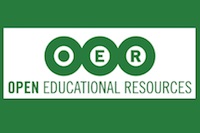Motives and tensions in the release of open educational resources: The UKOER program
 Open educational resources (OER) have been promoted as a path to universal education, supporting economic development and intercultural dialogue. However, to realise these benefits requires greater understanding of the factors that influence both OER supply and use. This paper examines an aspect of the supply side of the OER lifecycle – the motives prompting release – and the resultant tensions in the release process. It draws evidence from a major program of OER release projects (UKOER) funded by the UK government. The paper sets the UKOER program within the global context of OER initiatives. It uses grounded theory to identify five candidate motive types. Then, by mapping the actions evident in the UKOER program against an organisational framework derived from an activity system, it examines tensions or contradictions encountered by the projects, revealing unstated motives. The findings will be of interest to funders, institutions and educators releasing OER as they reveal potential limitations and barriers to realising the benefits of OER.
Open educational resources (OER) have been promoted as a path to universal education, supporting economic development and intercultural dialogue. However, to realise these benefits requires greater understanding of the factors that influence both OER supply and use. This paper examines an aspect of the supply side of the OER lifecycle – the motives prompting release – and the resultant tensions in the release process. It draws evidence from a major program of OER release projects (UKOER) funded by the UK government. The paper sets the UKOER program within the global context of OER initiatives. It uses grounded theory to identify five candidate motive types. Then, by mapping the actions evident in the UKOER program against an organisational framework derived from an activity system, it examines tensions or contradictions encountered by the projects, revealing unstated motives. The findings will be of interest to funders, institutions and educators releasing OER as they reveal potential limitations and barriers to realising the benefits of OER.







